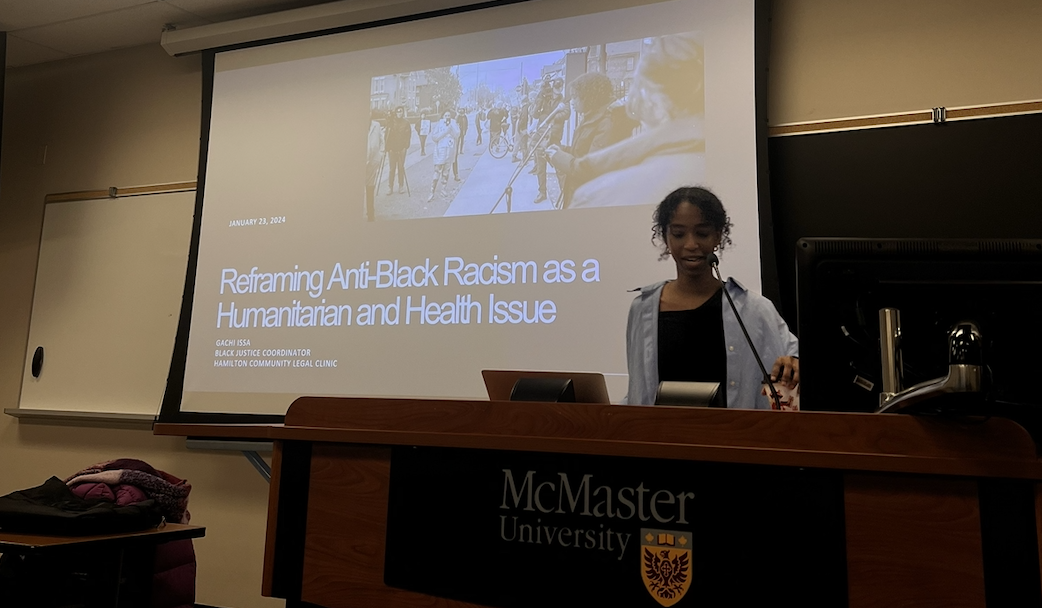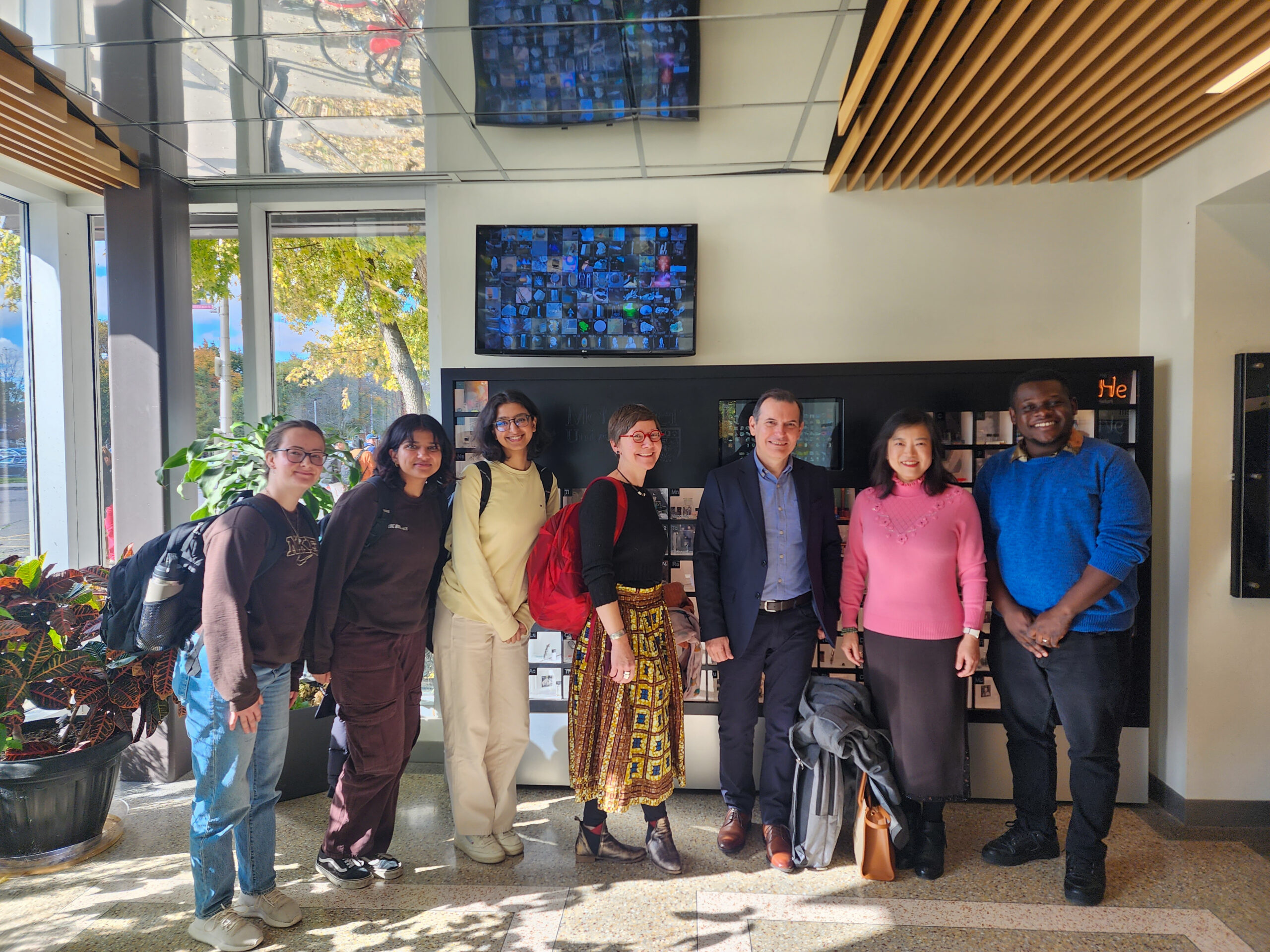Stop Cutting the Story Short: Re-framing Anti-Black Racism as a Public Health Issue

Seminar Presenter Gachi Issa, Black Justice Coordinator at the Hamilton Community Legal Clinic. The following Global Health Student Blog was written by Aoife Cummins, Global Health PhD Student.
On October 2nd, 2022, Marcus Charles was leaving work when he experienced an epileptic seizure. Emergency services were called and shortly after, Charles was tased by Hamilton police and charged with three counts of assault. For over a year, Charles fought to have these charges dropped, while advocating for mandatory epilepsy and seizure response training for law enforcement.
In the most recent instalment of the Global Health Seminar Series, Gachi Issa, the Black Justice Coordinator at the Hamilton Community Legal Clinic, shared Marcus Charles’s story. Throughout her presentation, she illustrated the holistic and longitudinal consequences of anti-Black racism within and beyond the Hamilton context, urging students and faculty to recognize this phenomenon as a public health crisis.
This call to re-frame anti-Black racism as a health and humanitarian issue stemmed from a deliberate effort to reject “simplified and outdated” narratives. Issa contended that prevailing depictions often reduce anti-Black racism to incidents bound by time and place. Drawing on the analogy of tree roots, she argues that anti-Black racism is transformative in nature. She explained that anti-Black racism is constantly adapting to contemporary and contextual conditions, embedding itself deeper and deeper into our systems and institutions.
One poignant example provided was the current housing shortage in Hamilton. Issa argued that “the current housing crisis in Hamilton is an anti-Black racism issue”. For instance, Black, Indigenous, and People of Colour (BIPOC) folk are disproportionately facing evictions and encountering challenges securing tenancy. The association between lack of stable housing and negative health outcomes such as stress and communicable diseases has been heavily researched. However, Issa brought attention to a more nuanced dimension of this crisis, expressing concern regarding how the loss of community can shape one’s overall health and well-being. Through rising rent prices and evictions, individuals are forced to re-locate, often separating them from their support systems and familiar surroundings. Isolation and challenges adapting to new environments can yield negative health impacts which may be slow to manifest, making it challenging to address through legal means.
This pervasive and persistent role of anti-Black racism remains unacknowledged within many dialogues regarding the housing crisis and other manifestations of systemic racism. Issa proposes that the media can be a powerful tool to combat these harmful narratives, a technique she has relied on frequently in her role at the Hamilton Community Legal Clinic. By getting stories out there, one can begin to change public perception to recognize anti-Black racism as an issue that impacts the security, health, and well-being of all. She also discussed the importance of celebrating ‘the wins’ to help stay motivated and demonstrate that change is possible. Shortly after Issa’s presentation, Marcus Charles’ charges were officially dropped, marking a step in the right direction. However, in highlighting this victory, we must not forget the scars this event has left on our community or the unchanged systems that allowed it to happen.
Towards the end of the seminar, a global health student asked Issa what students can do to help address anti-Black racism. “Get involved” stated Issa. Drawing from her own undergraduate experience, she acknowledged the challenges of finding time between classes and assignments to participate in global and local issues. However, she explained that we cannot continue to use names and stories without change. Whether it is by volunteering, attending a protest, or simply signing a petition, collective action is needed. As Issa demonstrated throughout her presentation, this is not a Black issue, but an issue that carries lasting and holistic consequences for all. Therefore, recognizing anti-Black racism as a public health crisis is fundamental towards catalyzing meaningful change.
Please see below for a list of local black-serving organizations and other relevant resources:
https://hamiltonjustice.ca/en/community-justice/black-justice/
https://acorncanada.org/about/
Student BlogRelated News
News Listing

November 12, 2024

November 5, 2024

Pollution, Power, and Protest: Unpacking Environmental Racism from Africville to Wet’suwet’en
Student Blog
October 10, 2024
